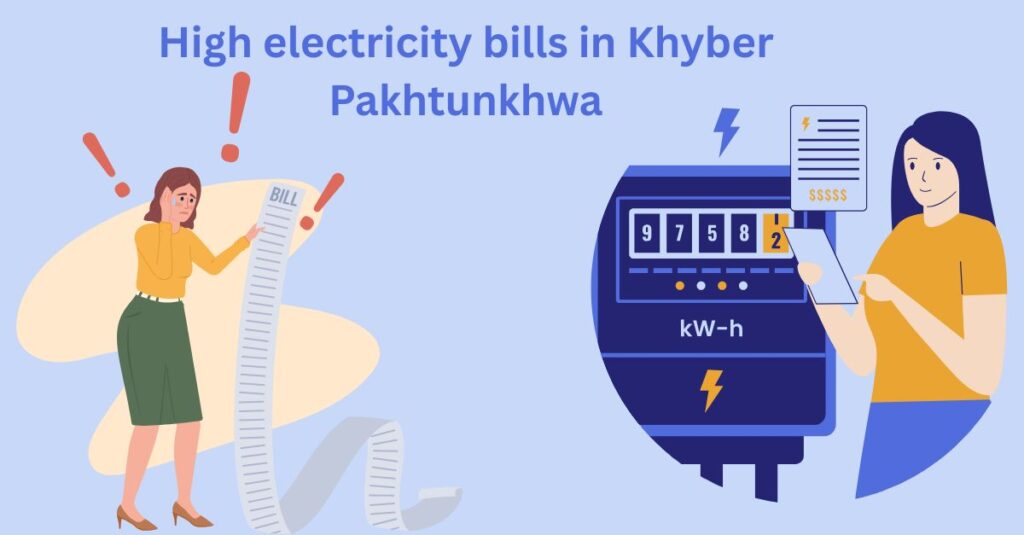Electricity is essential for every household in Khyber Pakhtunkhwa (KP), but many residents are struggling with rising power bills. Over the past few years, a noticeable increase in electricity costs has become a concern, especially in areas like Peshawar, Mardan, Swat, and other cities across the province.
While some of the increase is due to national tariff changes, the majority of the problem lies in local consumption patterns, hidden energy wastage, and aging infrastructure.
Energy Consumption Patterns in KP Households
How Daily Habits Affect Power Use
In many households across KP, energy use during the day is extremely high. Most people run washing machines, iron clothes, or cook with electric appliances during peak hours. These habits often go unnoticed but can increase the monthly cost significantly.
Another common issue is the continuous use of non-energy-efficient bulbs and old appliances that consume more power than needed. Refrigerators, ceiling fans, and tube lights that are not energy-rated can silently add hundreds of rupees to your bill.
To monitor this more effectively, it’s helpful to PESCO online bill check regularly and compare your usage trends. If your bill keeps rising without any new appliances in use, it’s time to look deeper into how your home consumes energy.
The Role of Limited Awareness
Many users are not fully aware of how much electricity different devices consume. For example, running a water pump for long hours or leaving the geyser on throughout the day can double energy use. Without understanding these basics, families continue to receive high bills without changing habits.
Old Wiring, Faulty Infrastructure & Hidden Wastage
How Bad Wiring Increases Power Loss
Old homes in KP, especially in rural areas, still operate on outdated wiring systems. These systems not only pose safety hazards but also contribute to hidden power loss through leakage. Electricity leaks through poor connections, increasing the total consumption that shows up on your meter.
In areas where voltage fluctuates frequently, appliances work harder to maintain performance, using more electricity than usual. These minor issues go unnoticed until the electricity bill arrives.
Device Inefficiency You May Not See
Water motors that are not well-maintained, freezers that never shut off, and old TVs with cathode tubes these are common in many KP households. Over time, these outdated appliances continue drawing power unnecessarily, leading to rising monthly bills without offering the benefit of efficiency.
Overloaded Connections and Unregulated Usage
Shared Meters and Excessive Loads
One of the biggest issues in urban centers and multi-family dwellings is the use of a single electricity connection by more than one household. This is often done to save money, but it backfires as the meter gets overloaded, pushing the billing slab higher.
In addition to shared use, many people install high-load items like electric heaters, deep freezers, and air coolers without considering the impact on total electricity use.
That’s where tools like the PESCO bill calculator can be helpful. It lets users estimate their expected bill based on appliance usage. But the tool is only helpful if usage habits change accordingly.
Illegal or Unmetered Extensions
In some areas, extensions are made without proper approval, using electricity beyond what’s registered. This unregulated use leads to line losses, which are later adjusted into everyone’s bills by the power company, affecting even those who consume fairly.
Seasonal Peaks and KP’s Extreme Weather Impact
Winter Heaters and Summer Coolers
Khyber Pakhtunkhwa’s harsh winters and warm summers push residents to rely heavily on electric heating and cooling devices. In winter, most homes use electric room heaters or electric rods, which consume large amounts of electricity in short periods.
In summer, fans and air coolers run for long hours, especially during load shedding recovery times when people overcompensate for earlier heat. This seasonal pattern drives energy use dramatically.
Fluctuating Voltage and Efficiency Loss
Voltage fluctuation is another hidden reason behind high electricity bills. When voltage levels drop, appliances use more current to operate, increasing electricity consumption even without the user doing anything differently. Such fluctuations are common in many parts of KP, especially during high-demand seasons.
Unaware Usage and Lack of Energy Audits
Why Homes Don’t Monitor Energy Flow
Most households in KP do not regularly check or analyze their electricity usage. While they may look at the bill amount, they rarely track where or how that usage occurred. Without such energy audits even simple self-checks wastage continues unchecked.
Small daily habits like leaving lights on during the day, forgetting to switch off the geyser, or running the motor longer than needed can silently inflate the bill.
Simple Steps for Awareness
Start by noting down major appliances and estimating how many hours they run per day. You don’t need advanced meters for this. Just becoming aware of high-power devices and reducing unnecessary usage can make a noticeable difference in the next bill cycle.
Avoid using devices during peak hours (6 PM–10 PM), switch to LED lighting, and unplug idle electronics to gradually cut down consumption.
Conclusion
Khyber Pakhtunkhwa’s rising electricity bills are not just due to price hikes or utility policies. A big part of the problem lies in homes themselves how energy is used, when it’s used, and how much of it is wasted unknowingly. Old wiring, outdated appliances, and shared connections only add to the issue. The good news is that most of these causes can be managed with simple, consistent changes in daily behaviour.


